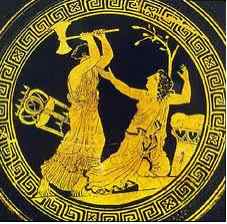Friday, October 22, 2010
Killing Death

Be suspicious if someone tells you, “XYZ is dead.” If XYZ is an inanimate thing, be especially cautious; the speaker might be a killer, one with a necrophicidal fantasy.
We’re examining the natural history of “XYZ” as stand-in for any concept, technology, or brand. Concepts have a natural history, perhaps. If they are born, they might metaphorically die. If they die, what are the indicators or conversely the vital signs lost at death? Do they have a metaphorical heartbeat, breath, or brain wave? You can see that the metaphor begins to fail.
Declarations of death are not unusual. In fact, their epitaphs are ubiquitous. Do a Google search for “ is dead” and you will find millions (25 million to be exact) of citations (66 pages or 652 “most relevant results” were found on 2010-10-20). The following list includes inanimate things that are purportedly dead in the first few pages:
• God (he’s been dead since Nietsche first declared him so, I think)
• Microsoft (in 2007)
• fur
• humor
• Dracula
• atheism
• reputation
• authentic
• the black church
• pagerank
• blu-ray
• blogging
• evolution
• conservatism
• the cigarette
• email
• rss
• chivalry
• Silicon Valley
• the iPod
• health care bill
• fiction
• SEO
• Facebook (in 2008)
• the book
• jazz
Need I point out that none of these things are or ever were dead? Well maybe one, but Nietsche had more skin in the game. It’s not difficult to raise the dead or metaphorically call forth Lazarus in these cases; they never even had nails in their coffins or made it to their tombs. In fact their vital signs are all beating, breathing, ticking and …ulating.
 From whence comes this preoccupation with declarations of death? The authors of these death wishes seem to think of themselves as Cassandras, but I’m going to speculate that the reason why so many people say “XYZ is dead” is that they want XYZ to be dead. They are really angry at XYZ. They have homicidal thoughts about XYZ. Let’s call these necrophicidal (they love death so much they want to kill; in contrast, necrocide is to kill the already dead and necromancy is summoning spirits of the dead) fantasies. They want to murder XYZ.
From whence comes this preoccupation with declarations of death? The authors of these death wishes seem to think of themselves as Cassandras, but I’m going to speculate that the reason why so many people say “XYZ is dead” is that they want XYZ to be dead. They are really angry at XYZ. They have homicidal thoughts about XYZ. Let’s call these necrophicidal (they love death so much they want to kill; in contrast, necrocide is to kill the already dead and necromancy is summoning spirits of the dead) fantasies. They want to murder XYZ.
 I’m not a psychologist, and I’m way out of my league, but I’m examining those who are trying to summon death. If they can prophesy falsely, I should have the liberty to commit some amateur psychologizing. These false prophets are not Cassandras; they are merely execution cheerleaders trying to stir up a killer mob.
I’m not a psychologist, and I’m way out of my league, but I’m examining those who are trying to summon death. If they can prophesy falsely, I should have the liberty to commit some amateur psychologizing. These false prophets are not Cassandras; they are merely execution cheerleaders trying to stir up a killer mob.
This preoccupation with death seems to be attempts to gain control over their own powerlessness. They hope to kill XYZ so there’s nothing to worry about. They also desire to be acknowledged for their prognostication; they publish their predictions. They also seem to delight, rather than lament, the death. “The king is dead, long live the king,” and maybe the king killer will ascend to the throne?
For a much more philosophical review of the natural history of technology and the unwise forecasts of death, see What’s Wrong With ‘X Is Dead’ in the Aug 17 2010 Atlantic.
To be serious (very briefly), discussing the evolution, metamorphosis or even transmigration would be more appropriate natural history metaphors for concepts, brands or technology. It really is quite silly or thoughtless to declare the death of something that lives in the mind, and the desire to do so calls for serious introspection rather than editorial license.
So exercise suspicion when someone says some thing is dead. Ask them how they feel about that thing? Question their motive. Warn them that Cassandra came to no good, never received credit for her predictions, and although she was 100% correct, it came at the cost of having snakes lick her ears clean.